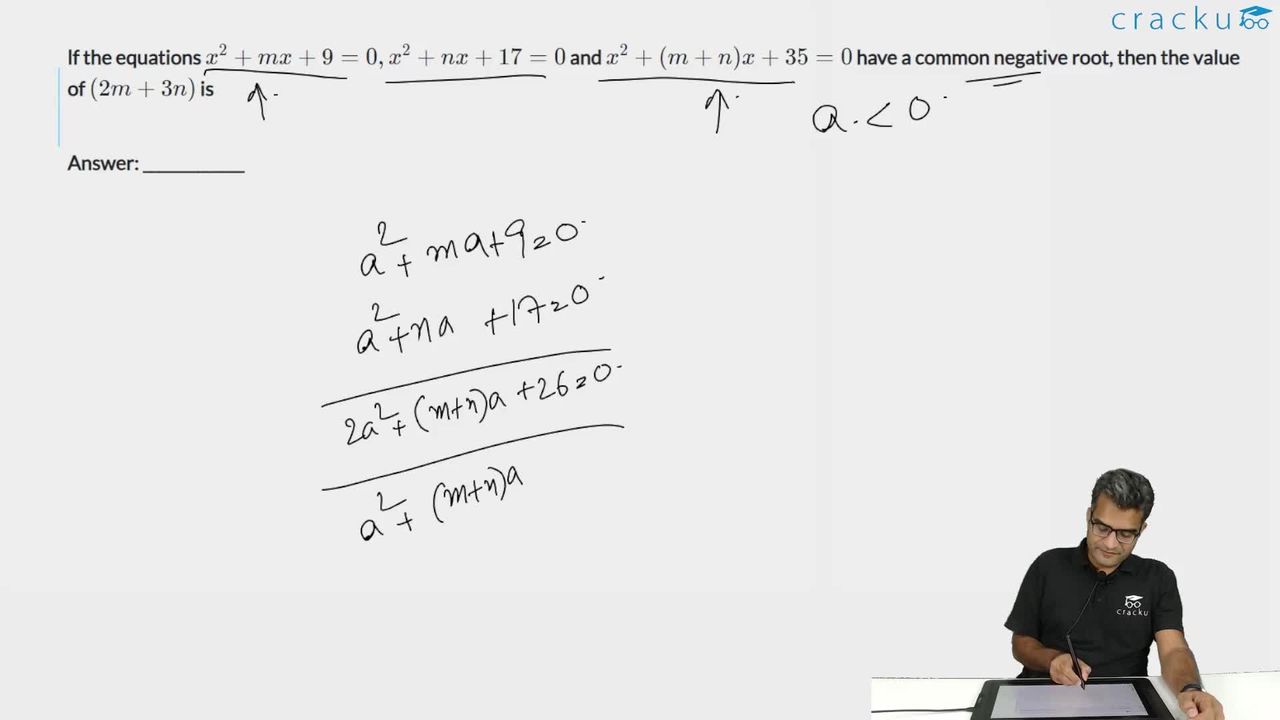Sign in
Please select an account to continue using cracku.in
↓ →
lf the equations $$x^{2}+mx+9=0, x^{2}+nx+17=0$$ and $$x^{2}+(m+n)x+35=0$$ have a common negative root, then the value of $$(2m+3n)$$ is
Correct Answer: 38
When given more than one equations, stating the fact that there is a common root,
We need to equate the two equations to get discernible values for $$x$$
Here, we are given three equations with the values of $$m$$, $$n$$
$$x^2+mx+9=x^2+\left(m+n\right)x+35$$
$$mx+9=mx+nx+35$$
$$nx=-26$$
Similarly, we can do it for the other equation as well,
$$x^2+nx+17=x^2+\left(m+n\right)x+35$$
$$mx=-18$$
Substituting the value of either $$mx$$ or $$nx$$ in the original equations, we get
$$x^2-18+9=0$$
$$x^2=9$$
$$x=\pm\ 3$$
Since we are given that the root is negative, $$x=-3$$
$$n=-\dfrac{26}{-3}$$
$$m=-\dfrac{18}{-3}$$
$$3n=26$$
$$2m=12$$
$$2m+3n=38$$

Click on the Email ☝️ to Watch the Video Solution
Create a FREE account and get:
Educational materials for CAT preparation